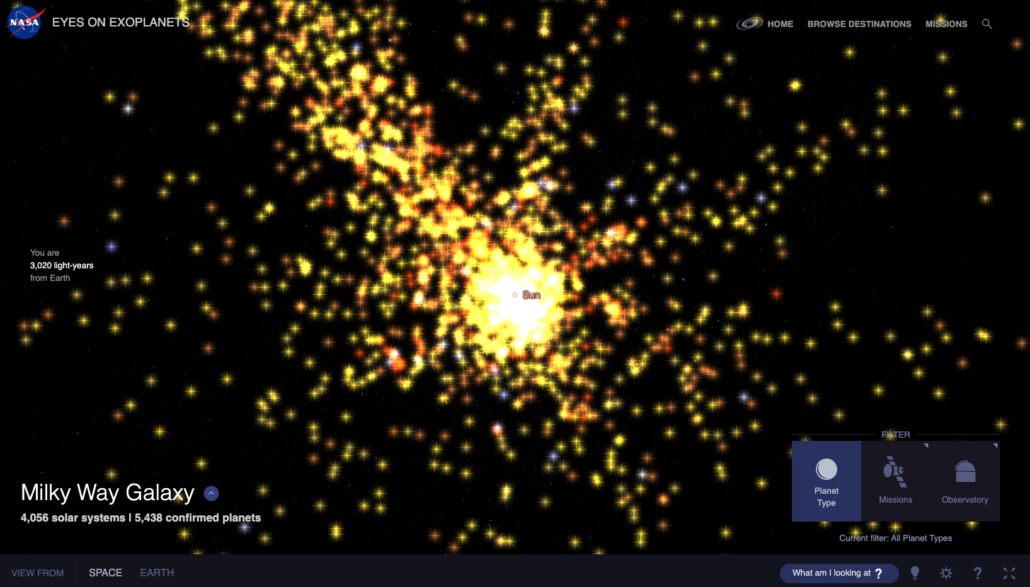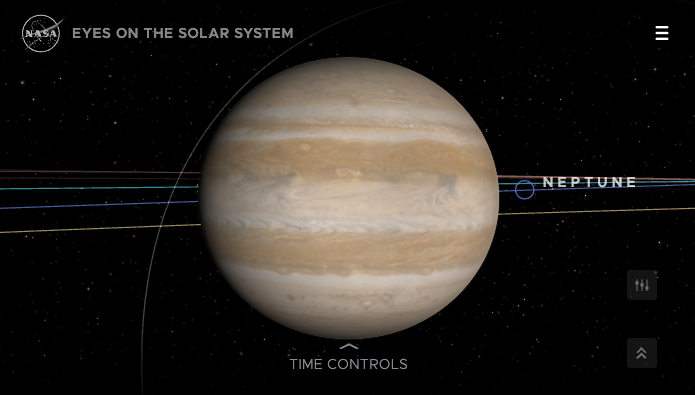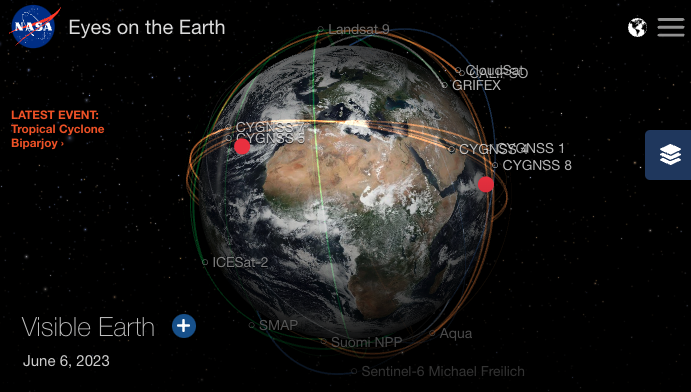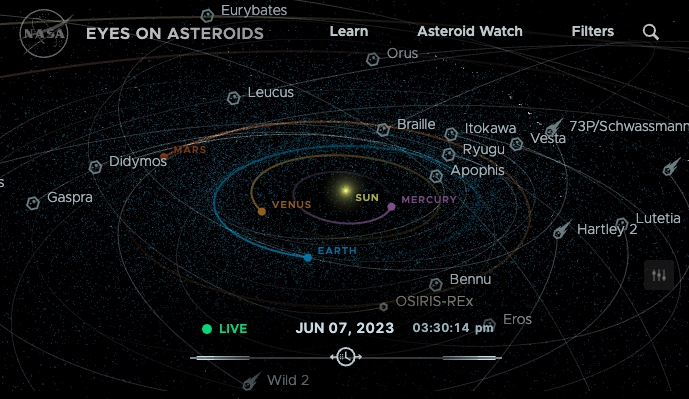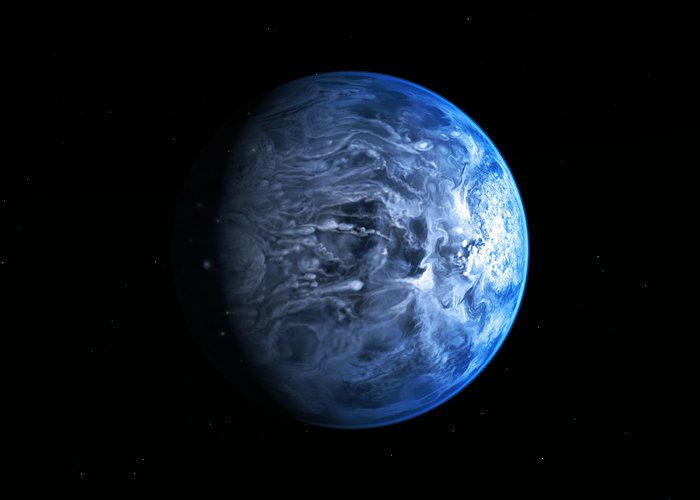Interactive Maps
NASA Eyes : Exoplanets
NASA Eyes : Solar System
NASA Eyes : Earth
NASA Eyes : Asteroids
What is an exoplanet?
An exoplanet, also known as an extrasolar planet, is a planet that orbits a star outside our solar system. The first confirmed detection of an exoplanet occurred in 1992; since then, thousands of exoplanets have been discovered.
Exoplanets come in various sizes, ranging from smaller than Earth to larger than Jupiter. They can have diverse characteristics, such as rocky compositions, gaseous atmospheres, or both. Some exoplanets orbit their stars at distances that allow liquid water on their surfaces, which is considered a crucial factor for the potential development of life as we know it.
The methods used to detect exoplanets include the radial velocity method, which detects the gravitational pull of a planet on its star, causing the star to wobble, and the transit method, which observes the slight dimming of a star’s light as a planet passes in front of it. Other techniques, such as direct imaging and gravitational microlensing, are also employed to detect and study exoplanets.
The study of exoplanets has significantly expanded our understanding of the universe and the prevalence of planets beyond our solar system. It has provided insights into planetary formation, evolution, and the potential for habitability in other star systems.
Latest Exoplanet News
- This essential element for life has been detected by James Webb on four exoplanets. - Stewartville Star
- This essential element for life has been detected by James Webb on four exoplanets. - Stewartville Star
- Interactive NASA exhibit on display at Marshall Library - Citizen Times
- Revealing Proxima Centauri's Extreme Flares - Universe Today
- Exploring HD 20794 d: A Super-Earth Laboratory for Habitability - SETI Institute
- Exoplanet nurseries around infant stars can be much smaller than expected: 'It is astonishing' - Inkl
- Exoplanet nurseries around infant stars can be much smaller than expected: 'It is astonishing' - Yahoo
- The future of studying exoVenuses looks bright - Phys.org
- Searching for aliens and Earth 2.0 | David Kipping: Full Interview - Big Think
- Detecting Exoplanets by their Magnetospheres - Universe Today
- When Was the First Exoplanet Discovered? - Scientific American
- The closest potentially Earth-like exoplanet probably can't host life - Mashable
- This new method could identify unexpected extraterrestrial life 👽 - Techno-Science
- WASP-107 b - Science@NASA
- GJ 9827 d - Science@NASA

